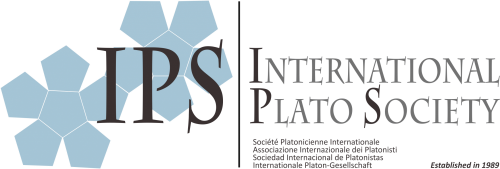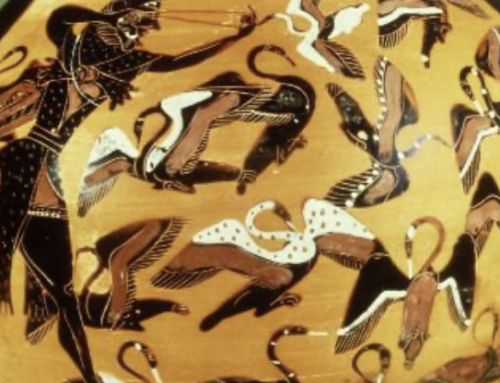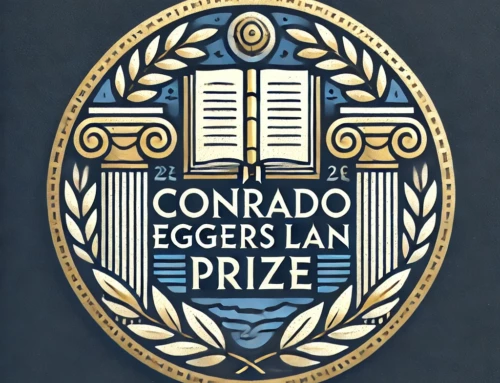Statutes
Approved by the Executive Committee in Piacenza, on 1.2.2003, according to the resolution passed by the General Assembly in Jerusalem, on 8.8.2001, ratified by the General Assembly in Würzburg, on 30.7.2004.
(Based on the statutes ratified by the General Assembly in Perugia, on 5.9.1989,
with Amendments voted by the General Assembly in Jerusalem on 8.8.2001,
and the General Assembly in Tokyo on 5.8.2010.)
1. Name : International Plato Society (IPS)
Société Platonicienne Internationale
Associazione Internazionale dei Platonisti
Sociedad Internacional de Platonistas
Internationale Platon-Gesellschaft
2. Seat : The seat of the Society is the city of its President.
3. Aims :
a) Promotion of Platonic studies throughout the world and communication between scholars of diverse disciplines working on Plato.
b) Organisation of Platonic Symposia normally every three years.
c) Publication of Proceedings of selected papers from each Symposium.
d) Preparation of a bibliographical bulletin, to be distributed to the members of the Society.
e) Promotion of publication of books and series on Plato.
4. Membership : For Full Membership of the Society all scholars can apply who have published at least one substantial article or book, or have completed a dissertation, on Plato or on the Platonic tradition, in the last fifteen years.
For Associate Membership those qualify who are working towards a doctoral degree (or equivalent) on Plato or on the Platonic tradition. Associate Members shall have all the rights accorded to Full Members, except the right to stand for office.
Local Plato Societies can apply for institutional membership, if at least one of their members is a Full Member of the IPS. Members of Local Societies who are not also Full Members or Associate Members do not have voting rights.
The General Assembly may decide to offer Honorary Membership to a person who has performed extraordinary services to the Society or to Platonic studies, or is otherwise deemed worthy of this honour. Nominations shall be made by the Executive Committee and the proposal shall be put to the General Assembly by the President. The proposal must be approved by at least two thirds of the voting members present.
The President approves the applications for membership, in accordance with the
resolutions of the General Assembly.
The triennial fees for the different categories of membership are set from time to time by
the Executive Committee.
5. The sovereign body of the Society is the General Assembly, which convenes during each triennial Symposium. The General Assembly elects the President, the Executive
Committee and other committees and officers as it sees fit, passes resolutions on matters concerning the good running of the Society according to its aims, and votes on the themes of the Symposia. Decisions may in extreme circumstances be made by the General Assembly through distance voting, such decisions being made by the appropriate majority.
The meetings of the General Assembly shall be conducted in accordance with Robert’s Rules of Order.
6. The President represents the Society, receives the fees, presides over, and calls ordinary and extraordinary meetings of the General Assembly and the Executive Committee and organises and presides over the triennial Symposium. The President may delegate powers to the Vice-President or to another member of the Executive Committee. The President shall present his or her triennial Report and audited financial Report to the Executive Committee after the end of his term. Following approval by the Executive Committee, the Reports shall be sent by the President to all Members in good standing.
7. The Executive Committee is composed of the President, the Vice-President, the former President and the next President, two representatives for Europe, one for the United States of America and Canada, one for Latin America, one for Asia, Africa and Australasia, and the representative of the C.J. de Vogel Foundation. No one person shall hold more than one office at any one time. The Executive Committee runs the Society according to the resolutions of the General Assembly, oversees the finances of the Society, and helps the President as necessary in the current running of the Society.
The President is elected at the General Assembly for a period of three years. Candidates for President are proposed to the General Assembly by one Full Member and seconded by two Full Members.
The Vice-President is appointed by the President at his or her discretion.
Members of the Executive Committee are elected by the Members of their region present at the General Assembly, for a period of three years, with the possibility of re-election for another three years, except for the outgoing President and the next President (who sit on the Committee for a total of nine years), the representative of the C.J. de Vogel Foundation and any Member co-opted at the President’s discretion, none of whom is elected. Elections for the Executive Committee shall be held at the General Assembly.
8. An Editorial Committee shall be appointed by the Executive Committee. The Executive Committee will see to it that the major languages of publication are appropriately represented in the Editorial Committee, and that there is due periodical renewal of members of the Editorial Committee with due regard for continuity.
9. The triennial Symposium is organised by the President, usually at his or her University, unless otherwise decided by the Executive Committee. Papers to the Symposium may be proposed by Full and Associate Members in good standing. The proposals shall be evaluated by the Executive Committee.
10. The theme of each Symposium shall be decided upon at the same meeting as the election of the President.
11. Changes in these Statutes can be made at the General Assembly by a majority vote of those present or, if so decided by the General Assembly, by a majority of those participating in a postal vote.
12. Dissolution : The Society can be dissolved by a two-thirds majority vote of all of its Members in good standing. The financial assets of the Society shall then revert to the C.J. de Vogel Foundation.



